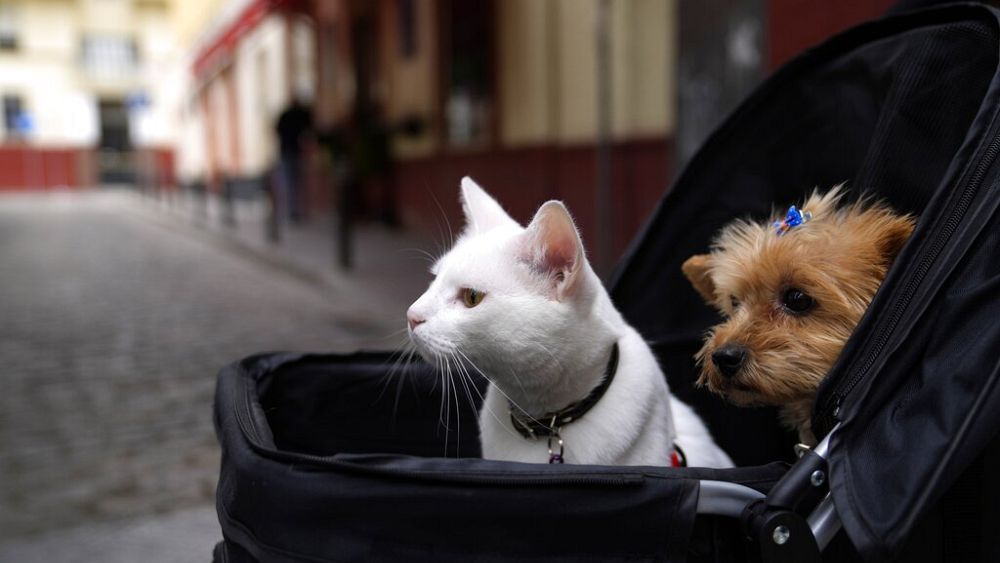From abandonment to a licence to fly, see what pet owners will and won’t be able to do in Spain from now on.
In Spain, there are more than 29 million pets. Abandonment and lack of identification are some of the most frequent problems with them.
In order to solve this situation, last March the Official State Gazette (BOE) published the Animal Welfare Law, which comes into force this Friday.
It is a new regulation that adopts stricter rules for pet owners and affects all animals, domestic or wild that are under human care.
The objective, according to the Ministry of Social Rights, is “to fight against the mistreatment, abandonment, and slaughter of animals”.
It could enable animal abuse to be punished with more than one-year imprisonment and up to 36 months in case of death.
What is banned from now on?
The use of spikes, electric shock collars or tying animals to moving motor vehicles is now prohibited.
Circuses including animals, which some legislations already prevent, are banned under this new law, but popular celebrations with bulls are excluded.
The commercialisation of animals in pet stores is also prohibited. It will now no longer be possible to sell cats, dogs, or ferrets; it will only be possible to acquire these animals of less than four months of age directly from their birth breeding nucleus or through adoption from registered animal protection entities.
From insurance to the right to fly
This law will require “compulsory” liability insurance for dog owners – not full pet healthcare.
The law favours the entry of pets in means of transport; in the case of shipping companies, airlines and trains, these will have to take measures to facilitate the access of pets, as long as the owner respects the security measures and ensures the correct behaviour of the animal.
Don’t leave me alone and treat me right
The law also says that a pet may not be left unattended for more than three consecutive days, a period that is reduced to 24 hours in the case of dogs.
Leaving dogs or cats on terraces or patios, although not prohibited, is now time-limited.
Nor can they be left in closed vehicles, exposed to heat or cold, or tied up at the doors of a store without supervision.
Also there is now a maximum amount of pets one can have: five.
Avoiding uncontrolled breeding
The new law also establishes rules to avoid uncontrolled breeding of pets.
The objective is that breeding should be carried out by responsible persons who are registered in the Register of Breeders of Companion Animals.
It specifies that measures must be taken to avoid uncontrolled reproduction, betting on sterilisation and making it compulsory for those animals that cannot be controlled.
In this sense, all cats will have to be identified and sterilized before the age of six months, except those registered as breeders.
The objective is to control the colonies of community cats and progressively reduce their population.
